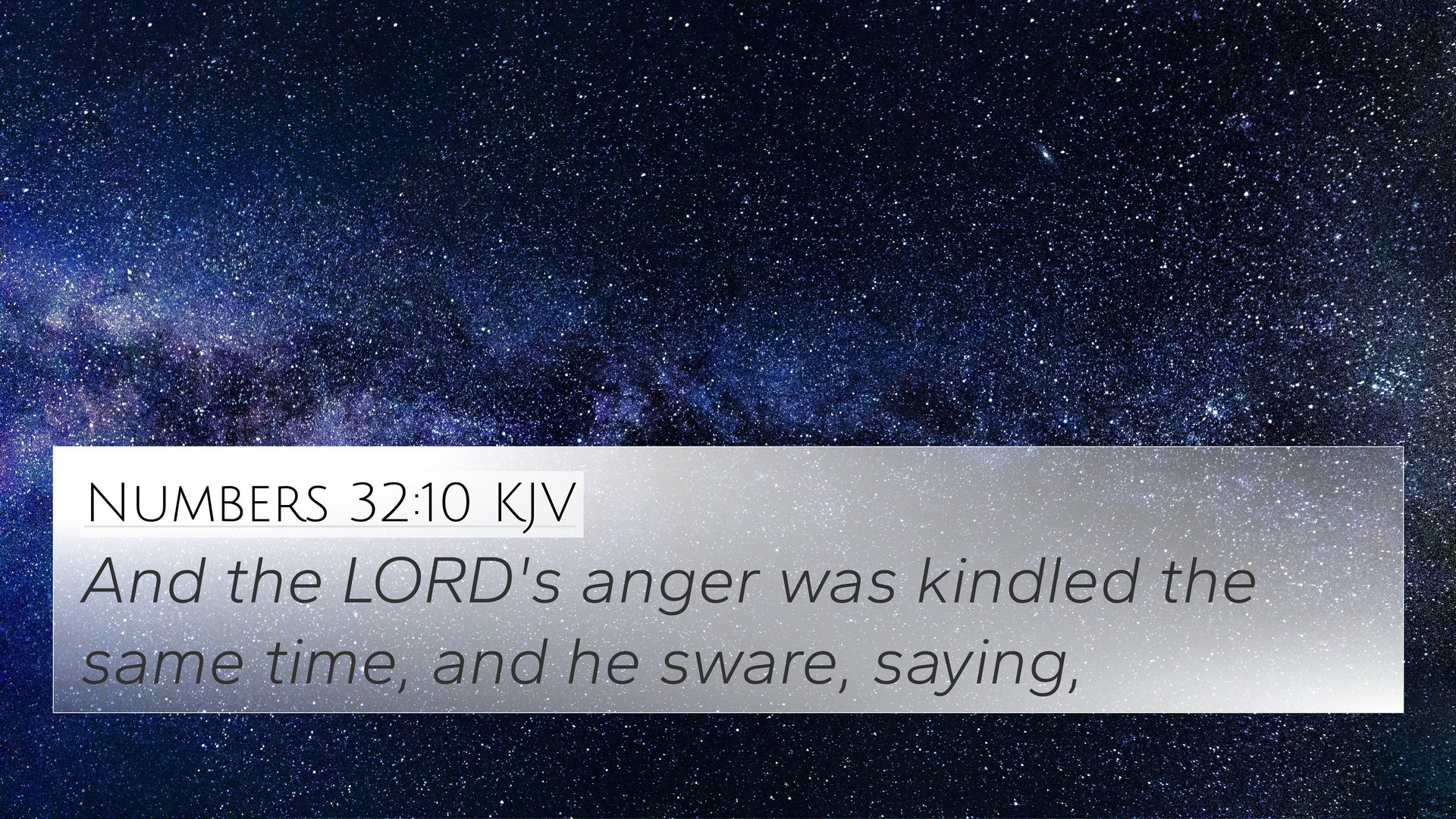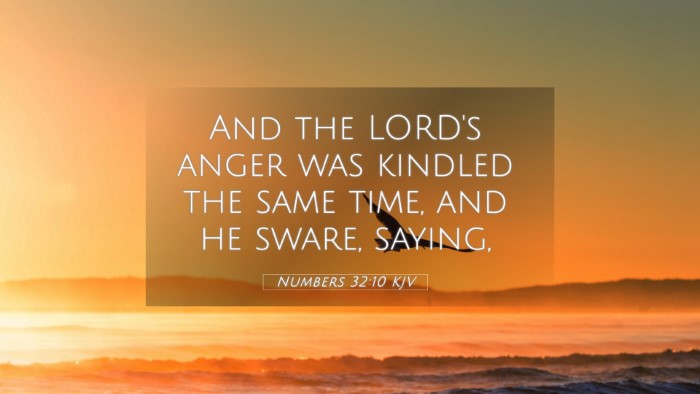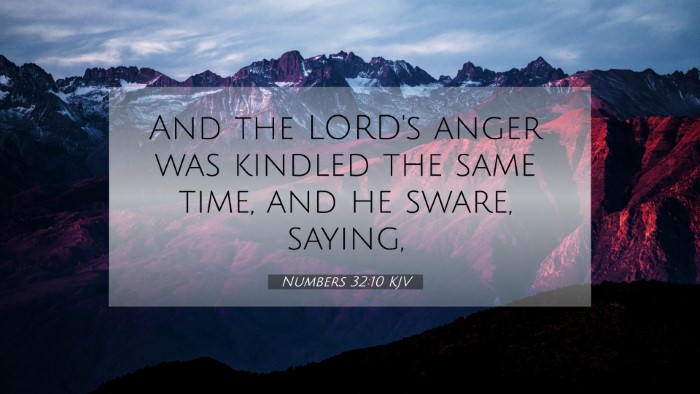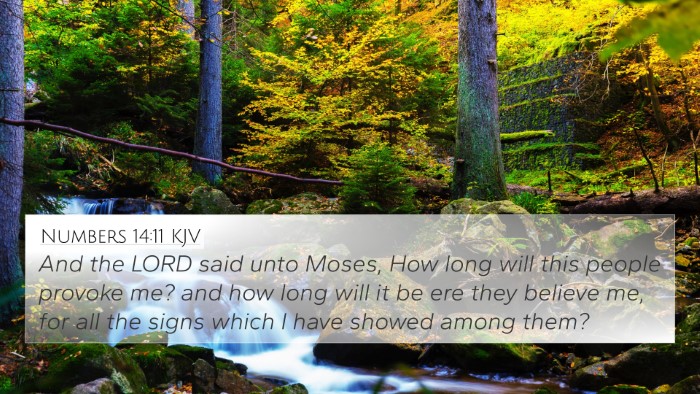Understanding Numbers 32:10
Numbers 32:10 states: "And the Lord's anger was kindled the same time, and he swore, saying,
Surely none of the men that came up out of Egypt, from twenty years old and upward,
shall see the land which I sware unto Abraham, unto Isaac, and unto Jacob;
because they have not wholly followed me." This verse contains impactful insights
related to God's faithfulness and the consequences of disobedience.
Contextual Overview
This verse occurs in a critical section of the Book of Numbers,
wherein Israel stands on the verge of entering the Promised Land.
The tribes of Reuben and Gad express their desire to settle on the eastern side of the Jordan River,
prompting God’s immediate reaction.
His anger reflects the seriousness of their lack of faith and commitment to enter the Promise.
Commentary Insights
Matthew Henry's Commentary
Matthew Henry emphasizes the severe repercussions of unbelief.
He notes that the collective failure to trust in God while facing challenges resulted in God's judgment.
This serves as a lesson on how individual and communal faith impacts God's promises.
He articulates that their reluctance demonstrated not only a lack of faith but also a repudiation of God's promise.
Albert Barnes' Notes
Albert Barnes highlights that God's anger was a response to the persistent rebellion of the Israelites.
He points out the faithfulness of God contrasting with Israel's unfaithfulness.
This refusal to enter the land was akin to rejecting God's providential grace.
Barnes connects this narrative to similar instances of disobedience found in the broader biblical text.
Adam Clarke's Commentary
Adam Clarke expands upon the significance of God's oath.
He elaborates that the swearing signifies an unchanging divine decree
against those who fail to follow Him completely. He places this passage in a wider context of God’s covenant relationship with Israel,
showing the seriousness of rejecting His command—something that reverberates through scripture.
Bible Cross-References
This verse resonates with multiple biblical themes found throughout scripture.
The following references illustrate the interconnectedness of biblical texts:
- Hebrews 3:17-19: Discusses the consequence of rebellion and unbelief.
- Deuteronomy 1:34-36: Details God’s disapproval of the Israelites’ cowardice.
- Psalm 95:10-11: Echoes the sentiment of anger towards the generation that did not enter His rest.
- Matthew 23:37: Jesus laments over Jerusalem in a reflection of God’s longing for faithfulness.
- Joshua 5:6: Highlights the importance of following God's commands as they were required for entering the land.
- Romans 11:20: Discusses the consequences of unbelief, paralleling Israel’s struggle.
- 1 Corinthians 10:5: Warns about the perils faced by the unfaithful generation.
Thematic Connections
The themes highlighted in Numbers 32:10 culminate in the vast narrative of God's covenant,
human failure, and divine justice.
This verse serves as a sober reminder of the importance of wholeheartedly following God.
It illustrates the grand inter-biblical dialogue on faith and obedience, enduring through both the Old and New Testaments.
Conclusion
In summary, Numbers 32:10 is a potent reminder of the consequences of disobedience to God’s commands.
It urges readers to reflect on the importance of faith and the repercussions of lack thereof.
Through the insights of Matthew Henry, Albert Barnes, and Adam Clarke,
one can draw a comprehensive understanding of this scripture and its relevance today.










